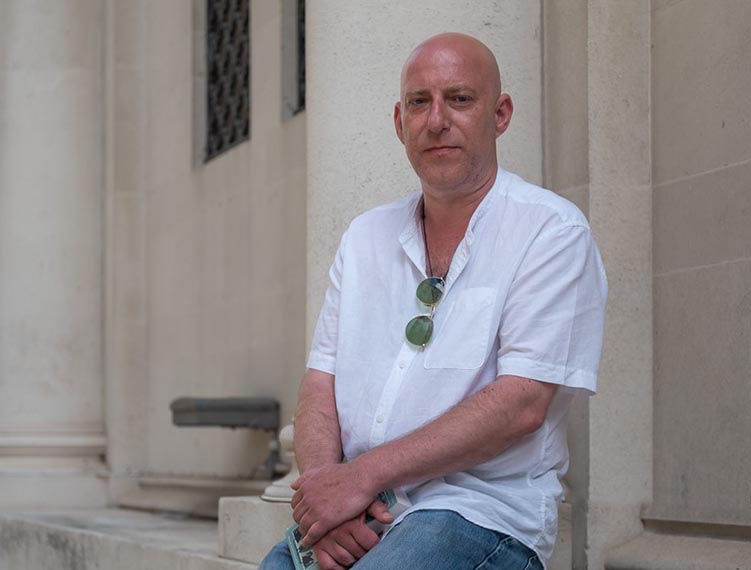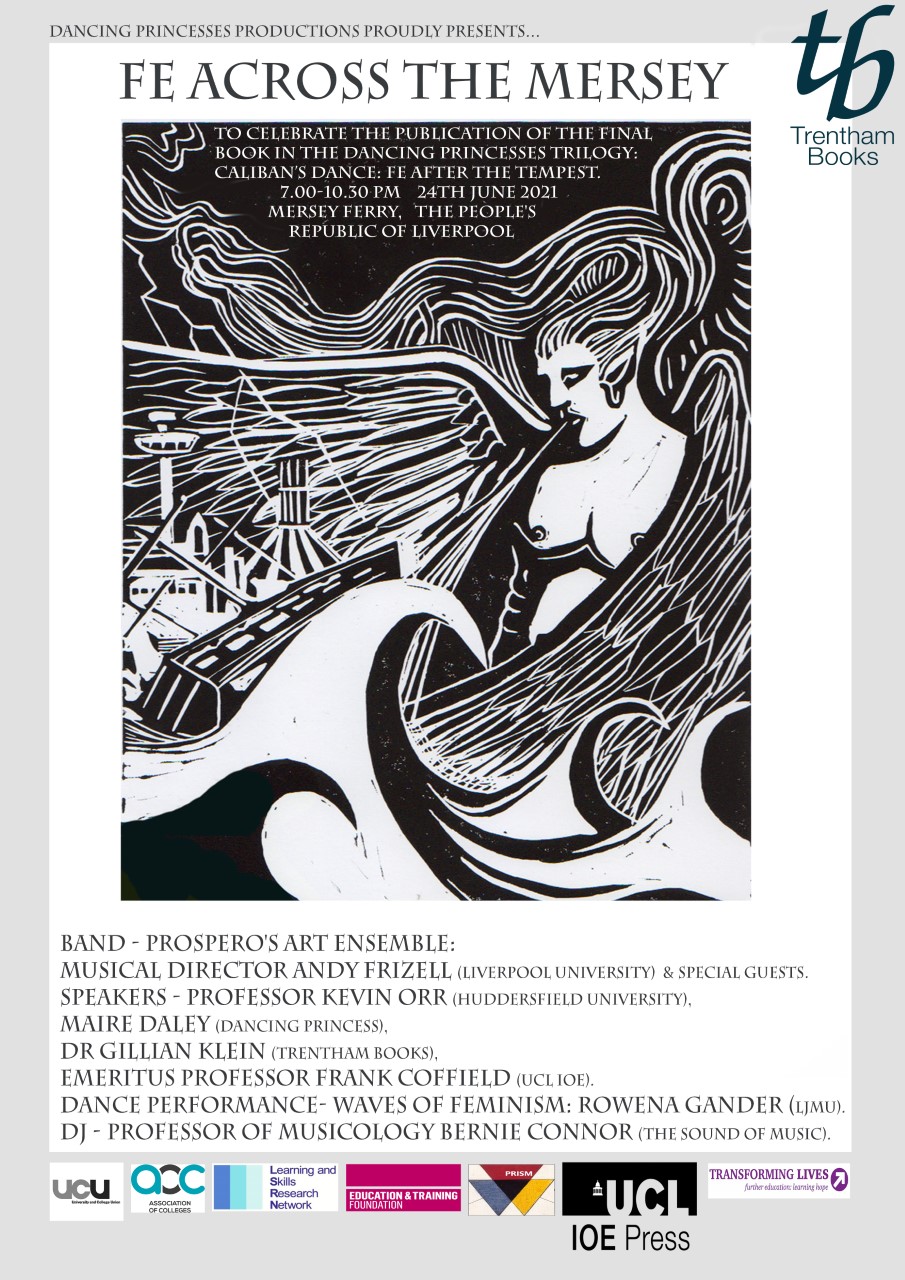Trentham Books to relaunch as UK’s only independent publisher focused on Lifelong Learning


Gillian Klein (Founder, Trentham Books) in conversation with Joel Petrie (co-editor, the Dancing Princesses trilogy)
Joel: Since you’re considering entrusting Trentham Books to me, Gillian; I’d value knowing more of its radical history. How did it start?
Gillian: That’s rather a long story, Joel! My mother gave me a love of words. She wrote popular short stories for South African magazines – but she couldn’t spell.
By age 14 I was amending her stories so her heroines no longer ‘padded bearfooted’. Never did publishing cross my mind; books were what I read. When I was barred from teacher training college because I married immediately after my degree, I settled for a PGC in Library and Information Science.
That was in the early 1960s – but in South Africa the clocks were set back 50 years. And when I fled my beautiful homeland after the police massacred peaceful protesters at Sharpeville Township; I believed I’d left racism and social injustice behind. I soon learnt that I hadn’t.
In the ‘motherland’ racial injustice just takes different forms.
Joel: So did you become a publisher when you moved to the UK?
Gillian: No, first I began work at a girls’ grammar school, as one of 500 pioneer qualified librarians to be placed in the secondary schools in ILEA (the vast Inner London Education Authority).
I went on to set up the library and information unit in ILEA’s own research centre, CUES. I read books I bought for it, such as Franz Fanon’s Black Skins, White Masks for the first time – such books were banned in South Africa.
So began my true education. That the South African authorities had banned Black Beauty no longer seemed funny, especially as they apparently deemed Noddy books and golliwogs acceptable for their children.
Inspired by Dorothy Kuya and by Judith Elkin, Children’s Librarian at Birmingham, CUES published a slim booklet: Assessing Children’s Books in a Multi-ethnic Society. It considered ways to evaluate the printed word for schoolchildren, and challenged the selection criteria that were too often used, especially: ‘I read Little Black Sambo when I was a child, and it didn’t hurt ME’.
Joel: I assume this work was really welcomed?
Gillian: Er, not perhaps in all quarters… The Evening Standard and Daily Telegraph seized on the booklet to send me up as a mobile left-wing Mary Whitehouse. ILEA’s Press office persuaded me to go on TV’s Newsnight (live) to put the record straight!
Said Sue Lawley after grinding down terrified TV novice: ‘Surely Alice in Wonderland is unfair to dormice, and Little Red Riding Hood is unfair to wolves?’
I replied that we didn’t have many dormice or wolves in ILEA schools, before proclaiming that ILEA was not in the business of banning books and neither was I.
Joel: At least you didn’t get Paxman!
Gillian: Quite! ILEA then seconded me to the prestigious independent body, Schools Council, to undertake a project on Resources for Schools in Multicultural Society. To four annotated lists of publications, including one of novels for educators, I added one describing leading initiatives on this emerging topic of ‘Multicultural Education’ – and that was how I found Professor John Eggleston.
Always at the leading edge of sociology of education, he’d set up a course at Keele University for teachers to learn about teaching appropriately for a diverse society. He had already established a curriculum-changer journal reconceptualizing the school subject of ‘Craft’ as ‘Design and Technology’, which Barbara Wiggins, his retired PA at Keele, distributed from her home – in Trentham.
John suggested I begin a journal that he’d fund for a year, which had to be called Multicultural Teaching (MCT). Other than the title, I’d have free reign. MCT, relaunched 20 years later as ‘Race Equality Teaching’, was a perfect vehicle for reviews of the ‘multicultural’ resources for schools that were slowly appearing, not all of them well thought out.
Joel: Was this the genesis of Trentham?
Gillian: Yes, more or less. Back at ILEA in late 1982, after an eventful year as one of the first Research Fellows in Jagdish Gundara’s Centre for Intercultural Education at London’s Institute of Education, I was still also travelling to schools and conferences all over the UK with my four bags of books, containing a few examples of racist ones and a wide-ranging selection of inclusive materials, many of them hot off the press.
I was generally collected off a train by someone who’d been instructed to look for ‘the bag lady’. In my travels, I found exciting teaching materials being developed in Authorities outside London which would, I believed, have national relevance.
It soon struck me that I could sell such books on the back of the journal – literally. And I knew where the gaps in resources for schools were. John Eggleston’s printer and, amazingly, their brilliant designer, John Stipling, produced the books, as well as John’s and my journals.
Joel: Why did you call the press Trentham Books, Gillian?
Gillian: Simply because Barbara Wiggins distributed our publications from her front room in TRENTHAM, Stoke on Trent! And that’s how I came to publish what I’d been preaching for a decade. John developed new academic journals on various subjects, fattened up the subscription lists, then sold them off to Taylor and Francis. Several are still going strong. We soon had to buy large premises, and we gave good jobs to five local people, under the competent management of Barbara Wiggins.
Fast-forward a few years, and the tanned, smart-suited director of a financially successful publishing house stood looking at the displays of our publications we’d each set out at an education conference, and remarked: ‘Our books are market-driven; yours are editorially driven.’
He sold his company a couple of years later, for £4 million. I’ve often thought about how right he was – from start to finish, Trentham Books has been about content.
Joel: What was the first ‘official’ Trentham book?
Gillian: The very first was an A4 paperback called Looking into Language (1984), in which authors Audrey Gregory and Norah Woollard dared to suggest that children with no or little English did not have a language deficit – an argument that was carried forward over the years by scholars like Safder Alladina, Josie Levine, Maggie Gravelle and Jim Cummins. In under a decade the entire discourse became about teaching EAL – English as an Additional Language – not ESL.
The vocabulary was changing too – ‘immigrants’ became ‘refugees’ and then ‘Muslims.’ It was predictable that Trentham would publish equally challenging books about Early Years Education, less so that Dorothy Heathcote and her admirers, of whom I was one, would choose Trentham as the platform for her exciting brand of Drama Education in which students explored the world’s dilemmas and their own. This unique list culminated in 2017 with David Davis’s Imagining the Real.
Much of the Trentham catalogue focused on race and racism, sexism and homophobia, and on human rights. And these concerns also infuse the publications about pedagogy, policy and curriculum. The authors writing about the stories and the educational needs of minoritized children were increasingly drawn from within their own ethnic groups. Some topics were harder to commission – it was five years before I found someone to write about the abysmal educational provision for Traveller children.
Joel: And how did Trentham come to be under the umbrella of the IOE Press?
Gillian: I sold the domain to IOE Press in 2013, because Barbara was gravely ill, I was grateful the imprint would survive and that I could run it with little restraint.
Joel: Of course Trentham via UCL IOE Press were our wonderful publishers for the Dancing Princesses trilogy – had you published much on FE before this?
Gillian: No, there weren’t many FE titles in Trentham. Even Sheine’s Making Education Work: How Black men and boys navigate the Further Education sector (2015) mainly contrasted the discrimination Black boys endured in schools with their positive response to receiving respectful treatment when – if – they reached college.
So I don’t know why the Tempestuous Trio (you, Maire Daley and Professor Kevin Orr) brought the Dancing Princesses to me, and I didn’t risk asking at the time in case you changed your minds. I simply rejoiced.
So a question for you, if I may?
Joel: Of course.
Gillian: I wouldn’t have considered ‘selling’ Trentham to you if I did not know you, Maire and Kevin would honour its radical history; but what specific plans do you have for the press?

Joel: To an extent that is still a little fluid, especially as we are massively keen to draw in sector colleagues to get their ideas and support. We have a projected Editorial Board structure in mind – two linked committees, one made up exclusively of FE and HE researchers, and the other with representatives of sector bodies (such as the AoC, ARPCE, ETF, LSRN, NEU, UCU etc.).
Professor Rob Smith (BCU) will chair the practitioner group in the first instance, and Dr Lynn Sedgmore has offered to keep the sector representatives on track. Emeritus Professor Frank Coffield has very generously (since he is really retired) offered to be our Honorary President.
Gillian: It sounds very high powered!
Joel: To an extent: but I think establishing synergies between sector bodies, HEIs and FECs is needed; and chalkface FE researchers will dominate the Editorial Board (and I’d hope go on to be elected to key roles after the initial set up phase).
We are also clear that we will focus in particular on Lifelong Learning (FE, Adult, Community, Prison education etc.) in the UK nations and further afield. I think it will take a few months to get everything in place, so we might with luck think about starting to publish in 2022.
You will recall we had intended to ‘go public’ at our book launch – FE across the Mersey – for Caliban’s Dance: FE after the Tempest, but we were stymied by Covid and had to postpone (but have now rescheduled for December 2011).
We did though have a ‘soft launch’ this week, with Trentham Books’ first new publication in its revised iteration – Future FE Pedagogies. The other issue, of course, is that I haven’t a clue what I’m doing! I wonder, would you consider staying involved for now as Chair of our Editorial Board, Gillian?
Gillian: I thought you would never ask, dear Joel. I’d be delighted…
Gillian Klein has danced – and written – her way through three careers since fleeing apartheid: 20 years as librarian and adviser in ILEA; exciting teaching at Warwick University; then fulltime in the publishing house she co-founded with John Egglestone, because she loves her authors. She rejoices that her two children and four grandchildren were born here, but is horrified by politicians who love only themselves.
Joel Petrie has worked in post compulsory education as a lecturer, teacher educator, manager and trade unionist for longer than he cares to admit. He is currently completing an Educational Doctorate at Huddersfield University on leadership in FE. He cannot dance (but If Spiritualized plays he can be persuaded…).











Responses